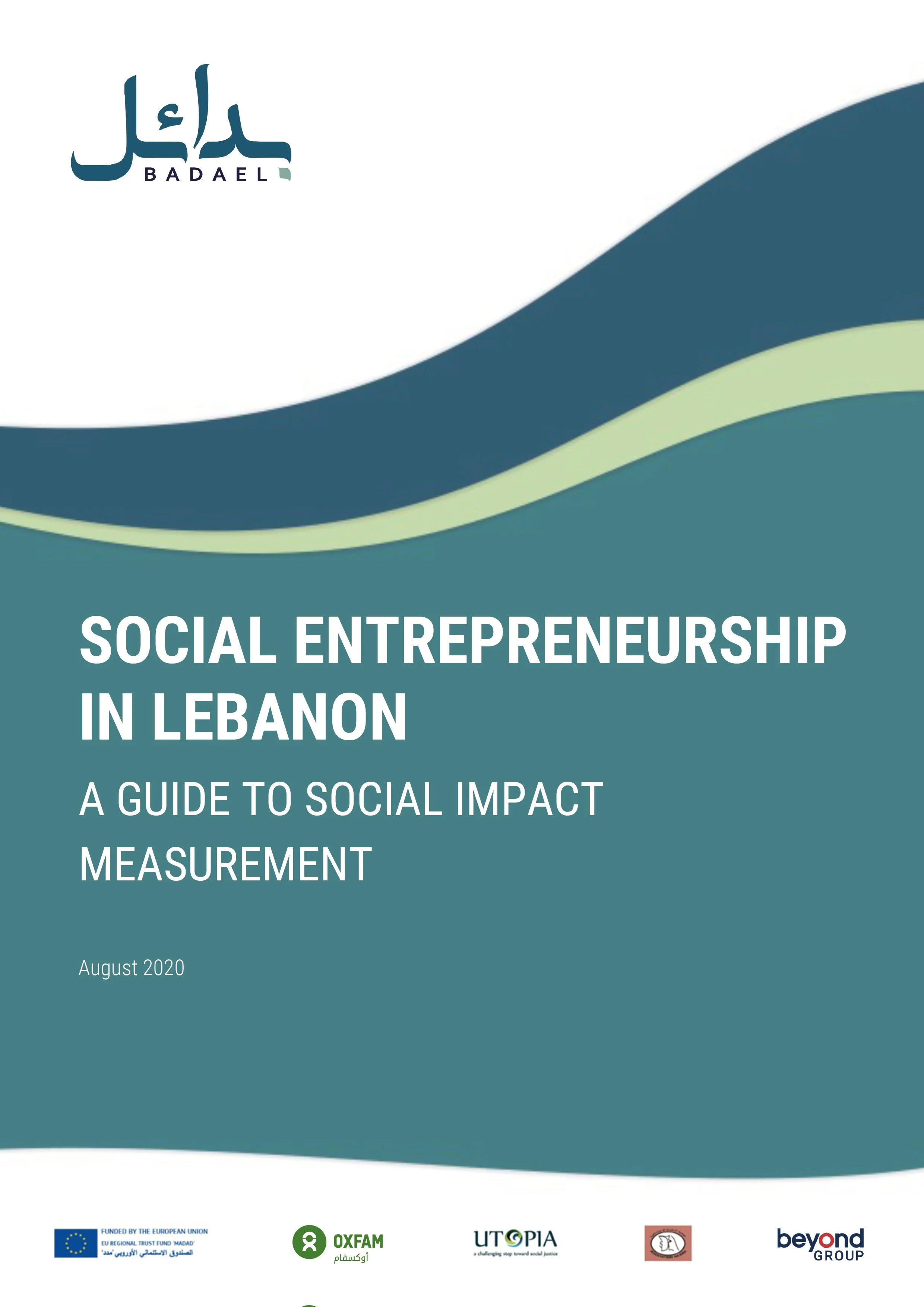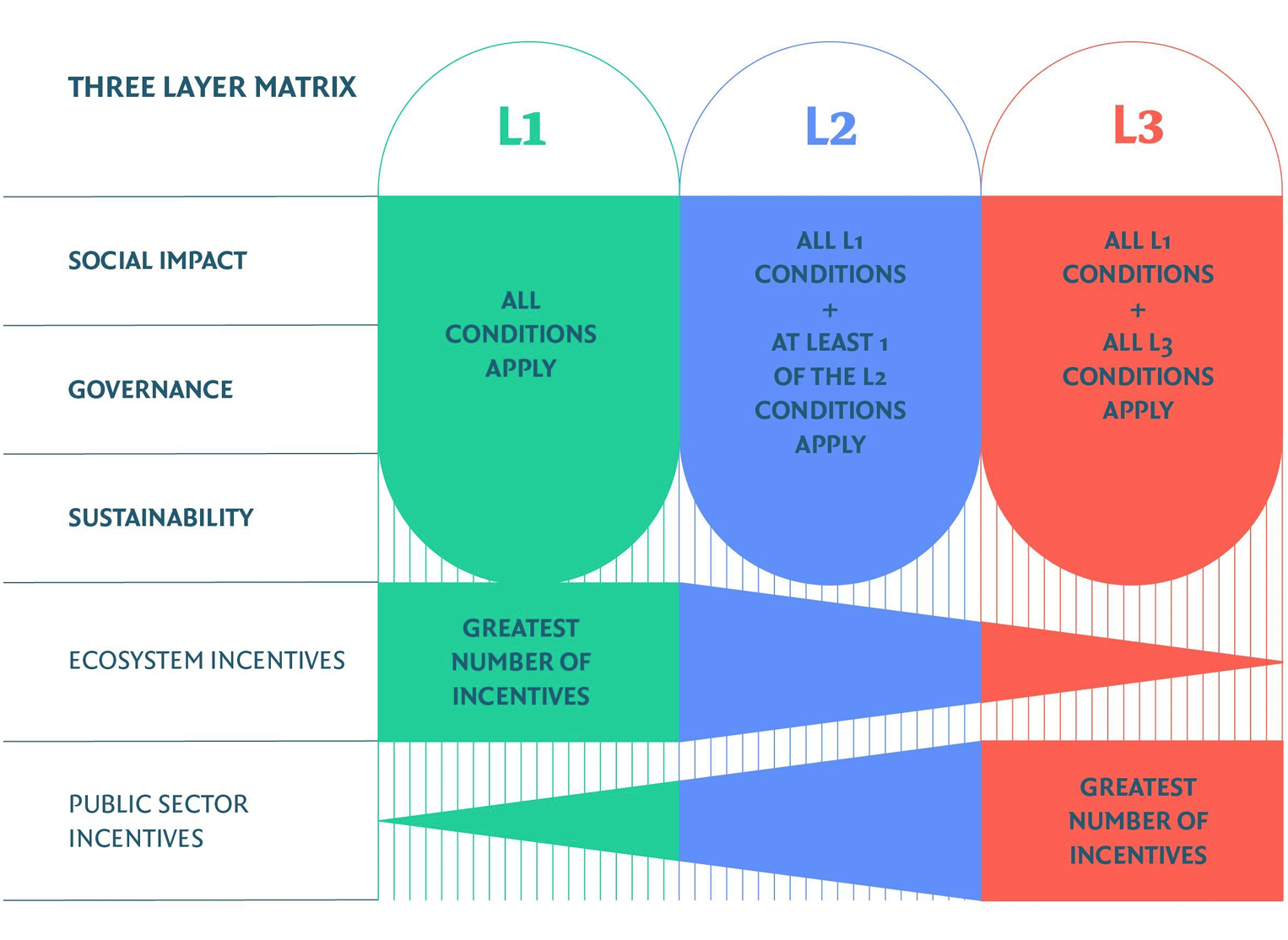A Guide To Social Impact Measurement
Developed By:
Beyond Group
In Partnership With:
European Union
Badael Consortium
2020
Social Entrepreneurship In Lebanon
A GUIDE TO SOCIAL IMPACT MEASUREMENT
Following the consultative process that was facilitated by Beyond Group with social entrepreneurship (SE) stakeholders and ecosystem actors in Lebanon, a policy framework for economic inclusion and social solidarity was proposed upon a detailed legal review and analysis of policy options for social entrepreneurship in Lebanon. The conversation has led to a consensus around a contextualized definition of social entrepreneurship in Lebanon, as well as a policy/legal option.
The Qualification Model was found to be the best legal option suited to social entrepreneurs in Lebanon, with a three-layered matrix that takes into account nascent and aspiring social enterprises, as well as already-existing social enterprises that could perform better if they had more incentives to do so.
The three-layered matrix defines social enterprises based on criteria set as per the agreed definition: social impact, governance, and sustainability. It sets basic requirements for social enterprises at level 1 (SEs L1). If the social enterprise fulfills additional conditions, it then moves into the higher qualification levels: the improved social enterprises (SEs L2) or a more impactful social enterprise (SEs L3). Accordingly, the three-layered matrix outlines incentives to each of the three levels of qualifications, and therefore incentivizes social enterprises at these different levels, especially the more advanced one, to aim for higher levels of incentives, social impact, and sustainability.
Each of these components (social impact, governance, and sustainability) includes a set of criteria that an SE needs to meet in order to earn a certain level of qualification. The ‘Social Impact’ dimension in particular considers three criteria: social mission, social impact measurement, and employment of disadvantaged people.
As the qualification manual serves as a practical guide for the governing entity to assess and qualify the social enterprises, this social impact measurement toolkit is a document dedicated to further elaborate on the proposed social impact measurement framework for Lebanon.
It starts with a general introduction on key concepts such as social entrepreneurship, social impact, and social impact measurement in Chapter 1. It continues with showcasing international best practices and guidelines adopted for impact management in Chapter 2, and presents the social impact measurement framework proposed for the Lebanese ecosystem in Chapter 3.


